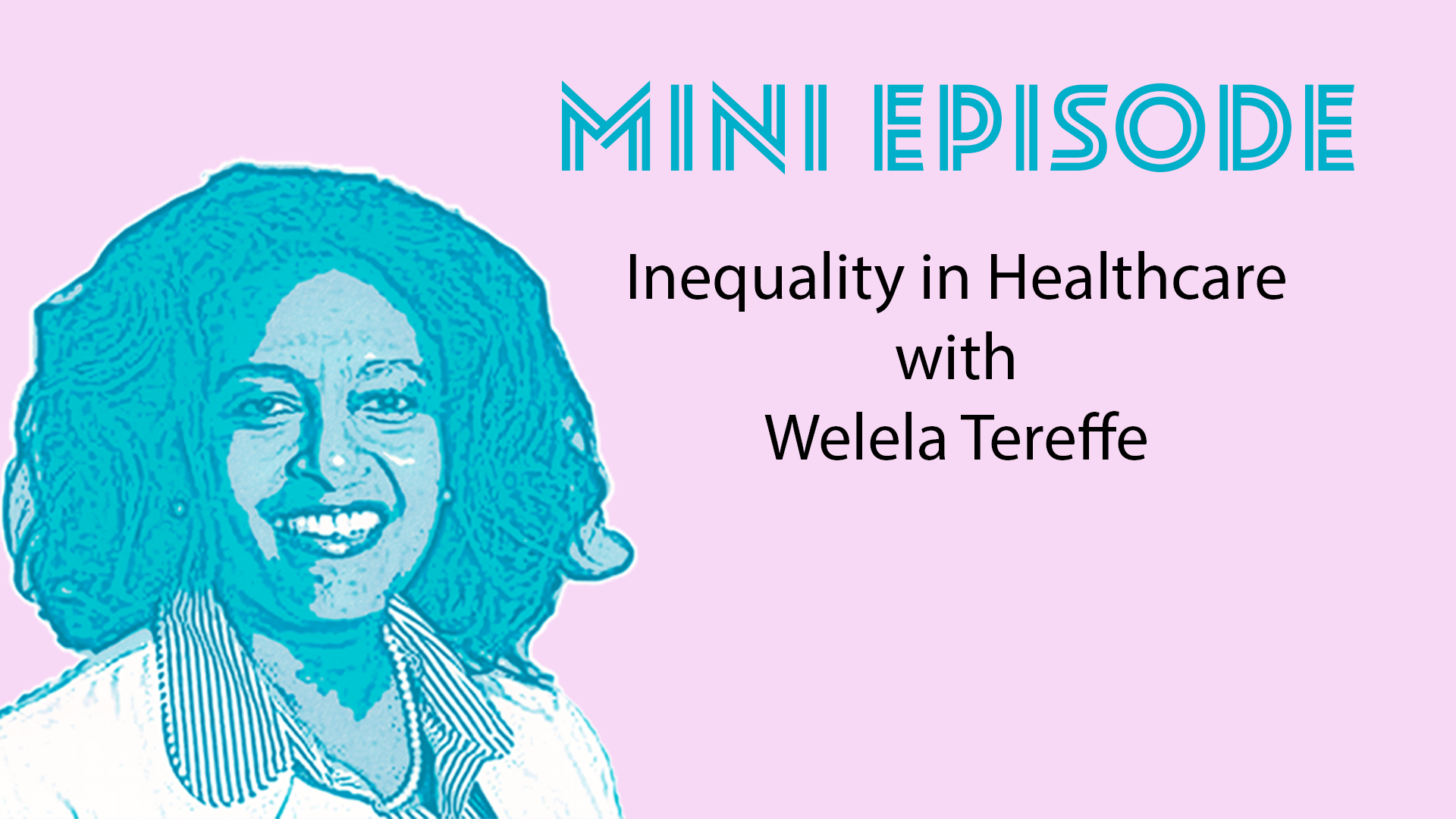The Chief Medical Executive of UT’s MD Anderson Cancer Center shares her thoughts about inequality in U.S healthcare.
Show Notes
This mini episode is a standalone conversation from the culture episode 2 with Welela Tereffe, M.D., the Chief Medical Executive of the University of Texas’ M.D. Anderson Cancer Center. In this mini episode, Welela shares important lessons about healthcare inequality, and discusses ways to improve the American healthcare system.
Episode Highlights
- Why there is a massive racial disparity in U.S. healthcare.
- Implicit biases affect the quality of healthcare people of color receive.
- How stress and aging take a disproportionate toll on African Americans.
- How minority representation in healthcare plays a key role in correcting some inequalities in the U.S. healthcare system.
Timestamps
[00:53] Welela speaks about poor health outcomes in the state of Texas.
[01:58] Welela discusses racial disparity in relation to breast cancer.
[02:55] Welela explains causes for racial disparity in healthcare.
[04:54] Welela shares why healthcare disparity is sometimes rooted in racism.
[08:18] Welela gives an example of how implicit biases affect the healthcare people of color receive.
[09:48] Welela and the hosts discuss the importance of representation in the medical field.
[12:31] Welela explains some of the ways we can increase healthcare equality.
[13:12] Welela talks about how to correct implicit biases.
[14:24] Welela defines systemic racism.
[15:21] Welela shares some of the incremental changes that could be made in healthcare to improve the system.
[16:11] Welela discusses how our lifelong health outcomes are driven by the environment we grow up in.
[17:43] Welela defines weathering and how it affects African Americans.
[19:38] Welela shares ways to reduce weathering.
[21:00] Welela offers an example of environmental racism.
[22:25] Welela asks the question: How do you engage more people of color to become healthcare workers?
[24:48] Welela speaks about how to help reduce implicit bias in the workplace.
Episode Quotes by Welela Tereffe:
“A recent study showed that when black women have a black obstetrician, their risk of maternal and infant mortality is something like three times lower. So, why is that? What’s the cause of that? I would say it’s likely the minimization of social distance, misperceptions, misdiagnosis, inattention, etc. that can happen because of our own implicit biases about people who are a different color than us.”
“We need to ensure equitable access to timely, efficient, effective, safe, high-quality care. And to do that, we need to reduce the number of uninsured people in this country. And we need to reform our healthcare system in general. That, in and of itself, will not remove all health inequalities. But it’s a start. It’s an important and major start.”
“A commitment to diversity, equity, and inclusion throughout our educational system is really, really important. That will increase the number of people of color who are in healthcare… It’s also very important for ensuring that we increase the number of women and minorities on clinical trials. Clinical trials are the way we advance in science.”
About Welela Tereffe
Welela Tereffe, M.D., is the Chief Medical Executive at M.D. Anderson Cancer Center in Houston, Texas. She’s a graduate of Brown University, New York University Medical School, and Harvard University. Her medical specialization is in radiation oncology.
Related Resources
- Patterson, Evelyn J., Andréa Becker, and Darwin A. Baluran. “Gendered Racism on the Body: An Intersectional Approach to Maternal Mortality in the United States.” Population Research and Policy Review(2022): 1-34.
- Seligman, Martin EP. “Learned helplessness.” Annual review of medicine1 (1972): 407-412.
- Wakeel, Fathima, and Anuli Njoku. “Application of the weathering framework: Intersection of racism, stigma, and COVID-19 as a stressful life event among African Americans.” Healthcare. Vol. 9. No. 2. Multidisciplinary Digital Publishing Institute, 2021.


